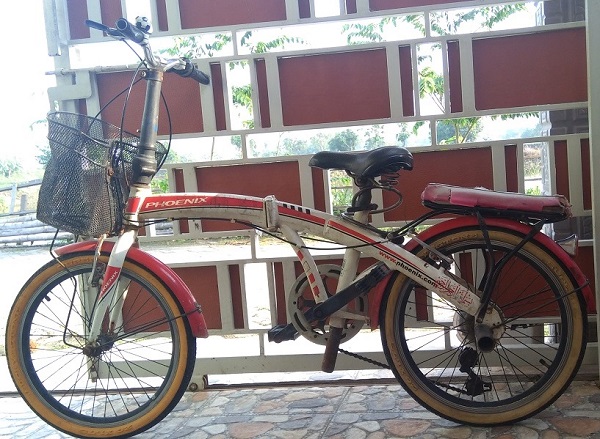 |
| Ojo geme-geme implies impending threat. |
The situation in our neighborhood has recently been a complete chaos. Neighbors in my block have seemed so easy to be instigated into hostility. Hostile remarks were made during a long chat on the local WhatsApp Group a day ago.
The aura of enmity was obvious when they were chatting. One member suggested another turn the lamp on just in front of her house during the night. The host refused to do so arguing the recently installed lamp post has outshone hers. This way she saw no urgency of keeping the light on at nights. She would do as told only if the new lamp be turned off.
One who tends to charge emotions aggressively will find hunger for more attacks.
This small request and light topic led to a harsh conversation that drew everyone into antagonism. A tiny matter that should be resolved by contacting the neighborhood chief was finally morphing into a terrible bedlam no one could bear. My wife remained calm as usual, witnessing the havoc going on. It was really unnecessary.
The one refusing to turn off her light was reprimanded with words and stickers containing fierce censure. When reading how the chat was exchanged, I barely believed it took place in a Javanese setting where social civility is normally maintained. It was totally abusive and those people lambasting were toxic at its worst.
"Menungso taek!" was contained in a sticker addressed to her. She's literally considered a piece of turd. This means the woman who sent the sticker doesn't respect her as compared to a stinking piece of human feces.
This reminds me of a Javanese idiom, entek ngamek kurang golek. The clause literally means getting more when out of stock and seeking more when lack of supplies. The people caviling in the chat have seemed to know every word of agony to make her suffer. They attacked aggressively using every possible expression to undermine her personality.
She eventually left the group after telling the reason. That she no longer benefits from the group that tends to disgrace others instead of empowering with meaningful messages. Entek ngamek kurang golek, then, that's when one lashes out someone else without giving him/her the opportunity to defend due to aggressively orchestrated argument of unfounded suspicions.
What a terrible conversation -- and neighborhood after all!
Becicik ketitik, ala ketara is a very famous idiom in Javanese and frequently used in many situations including the present time. The idiomatic expression never cease to be popular due to their significance and powerful message it conveys. To understand what it contains, let us read the following story -- a true one.
The village secretary in where my mom lives has long seemed incapable of doing his job. Not only is he irresponsible for what he's assigned to, all he has always cared about is making money outside his main task. Villagers have grown furious to find him leaving his office continuously that leads to important issues unattended.
However, villagers do not have the guts to confront the incapable secretary. They opt for keeping it a public secret and to some degree submit it to God for him to handle. And time speaks up. The despotic was finally doomed. He was met with inevitable adversary.
One sunny day, a wedding feast was held in a villager's house. The village secretary attended the occasion as well. Out of the blue, a man approached him and scolded him for presumably having an affair with the man's wife. The village officer denied and rushed to attack the man complaining.
To make story short, the village secretary was then questioned in the sub-district police station. He had to lose a lot of money during the process including his beloved automobile. Now that he has no more time to spend on making money in the port like usual. He is assigned to a new post in the sub-district center which is more strict and disciplined. He has no choice but to keep attending the new position whereas he may be unable to enjoy it.
In Javanese the idiom becik ketitik, ala ketara is an ideal portrayal of what has happened to the village officer. The idiom clearly means that what is true shall be true and the bad will appear the way it is. No matter how hard we're trying to conceal lies and deception, it's only a matter of time before everything is made ostensible.
This way we need to be true to ourselves and remain just in what we do regardless of what role we are playing. Do you have a similar idiom of your native language?
The origin of ketiban sampur
"Enak ya kamu, Rud, bisa ngomong beberapa bahasa berbeda!"
Begitu ujar seorang teman, bule asal Belgia dalam bahasa Inggris. Wajahnya jelas menunjukkan antusiasme dan kekaguman pada saya dan seorang teman wanita yang akan ia persunting sebagai istri. Percakapan itu berlangsung di teras rumah mungil di pinggiran kota Semarang belasan tahun silam sebelum kami bergeser ke sebuah hotel atau apartemen di pusat kota. Saya dan teman berbicara pakai tiga bahasa sekaligus: Inggris (yang juga dipahami si bule), Indonesia, dan tentu saja bahasa Jawa bahasa ibu kami.
Word is a primary component of a sentence. Without any words, a sentence cannot be produced so we won’t be able to speak or write it. In this sense, silah-silahing tembung serves a significant role to help us compose a good sentence. In Javanese, the part of speech goes as follows.
In the previous post I have presented how words are arranged in a sentence based on their function as subject, predicate, object, and adverb. In this post I am going to explain types of adverb in Javanese along with examples to make them clear.
- Ayu nyapu latar supaya resik. / Ayu sweeps the floor to make it clean.
- Bumi sinau sregep supaya lulus ujian. / Bumi studies hard in order to pass the exam.
- Omahe Waluyo reged amarga ora tahu diresiki. / Waluyo's house is dirty as he never cleans it. (Reged means dirty and is an adjective to tell readers the condition of Waluyo's house.)
- Roti sing dituku Beni kasar. / The bread Beni has bought is rough. (Kasar means rough and is used to tell us the surface of the bread.)





















